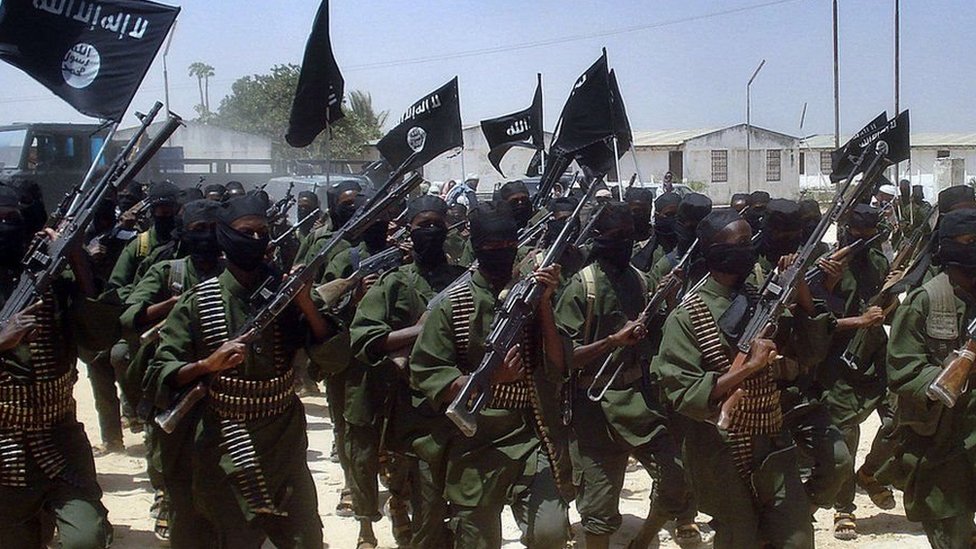
STRATEGIC ASSESSMENT. Working under the direction of a high-ranking al-Shabaab commander, Cholo Abdi Abdullah took flying lessons in the Philippines with the intent to conduct a 9/11-style terrorist attack in the United States by flying a plane into a building. A recently unsealed federal indictment included details of this foiled terrorist plot and Al-Qaeda’s continued interest in perpetrating attacks globally. Abdullah was arrested in July 2019 in the Philippines and was transferred this week to the custody of United States law enforcement. He faces multiple charges, including several counts of providing material support to a foreign terrorist organization, conspiracy to commit aircraft piracy, and conspiracy to kill U.S. citizens. The case indicates that Abdullah, who completed the tests required to receive a pilot’s license, researched how to breach a cockpit door, as well as information on the tallest building in an unnamed U.S. city and details on how to obtain a U.S. visa.
The latest plot is evidence that al-Shabaab, and al-Qaeda by extension following al-Shabaab’s declaration of allegiance in 2012, remain committed to attacks involving commercial aviation. In recent memory, al-Shabaab conducted two operations in 2016 using laptop bombs against aviation targets. The Shabaab commander directing Abdullah in the recent attempt in question was apparently the same individual in charge of plotting the January 2019 attack on the Dusit hotel in Nairobi, Kenya. Within al-Shabaab, Kenyan operatives have been tasked with greater responsibility and autonomy to plan and conduct attacks. The group’s propaganda referenced the U.S. decision to move the American embassy from Tel Aviv to Jerusalem, an event deemed so significant by al-Qaeda leader Ayman al Zawahiri that an entire campaign was named after it—‘Al Quds (Jerusalem) Will Never Be Judaized.’ Al-Qaeda’s operational capabilities have been degraded during the last two decades of a global counterterrorism campaign led by the United States. Yet, both core al-Qaeda based in South Asia and its affiliates throughout the world maintain the intent to attack U.S. interests, as well as those of its allies, and its continued relationships with communities and groups in several conflict zones allow it to further exploit or manipulate ongoing conflicts.
What the plot demonstrates, perhaps most forebodingly for Americans, is that al-Shabaab maintains the intent to strike the United States at home with a massive attack. Abdullah is reportedly the second al-Shabaab member to be arrested after enrolling in flying lessons. Within East Africa, al-Shabaab has launched several high-profile attacks in recent years, including a daring raid on the Manda Bay airfield in Kenya earlier this year, which resulted in the deaths of three Americans. Al-Qaeda core and al Qaeda in the Arabian Peninsula (ACAP) have both targeted the U.S. homeland, but prior to the disruption of this plot, many analysts considered al-Shabaab to be primarily focused on regional targets throughout the Horn of Africa, and counterterrorism attention has subsequently diminished. With an impeding drawdown of U.S. troops in Somalia, recently ordered by President Trump, there are growing concerns that al-Shabaab will resurge and metastasize into an even more potent threat. It would be a grave mistake to dismiss the threat of al-Qaeda or its franchise groups. Furthermore, there are well-founded concerns that as Washington focuses on great power competition, its counterterrorism capabilities will atrophy, creating new opportunities for transnational terrorist groups.
Commenting on the plot, Martin Kimani, Kenya’s Ambassador and Permanent Representative to the United Nations, reminded the international community that al-Shabaab ‘has the appetite to launch major worldwide attacks.’ Ambassador Kimani went on to say that designating the group as terrorists under UN Security Council’s 1267 counterterrorism sanctions regime would help limit the group’s ability to raise and transfer funds. Until now, despite the acknowledgment by many states, including Security Council members, that al-Shabab is an Al-Qaeda affiliated terrorist group, there has been some hesitation to do so amidst fears of imperiling humanitarian assistance in Somalia. UN entities and non-governmental partners have said that without any exemptions in the sanctions regime for humanitarian assistance, concerns about the impact of sanctions measures and derisking could force them to limit operations. While this concern is not limited to the Horn of Africa, the question of what to do with al-Shabaab is likely to loom large as Kenya assumes a seat on the Security Council (TSC).





